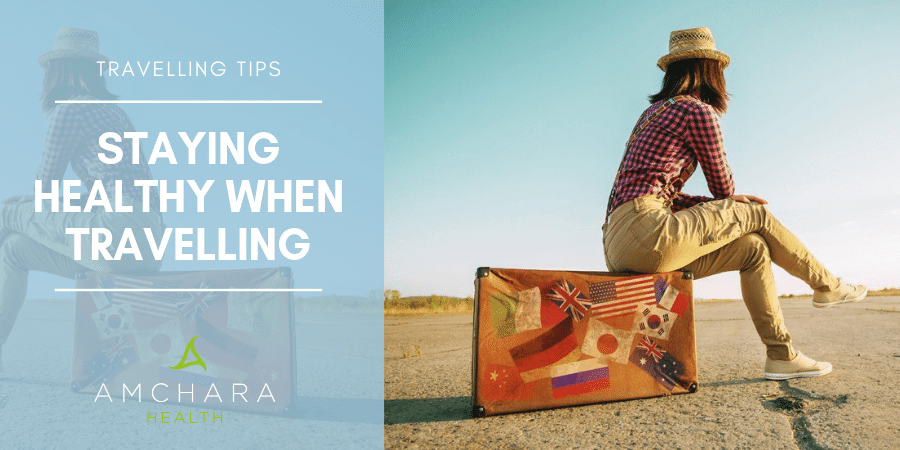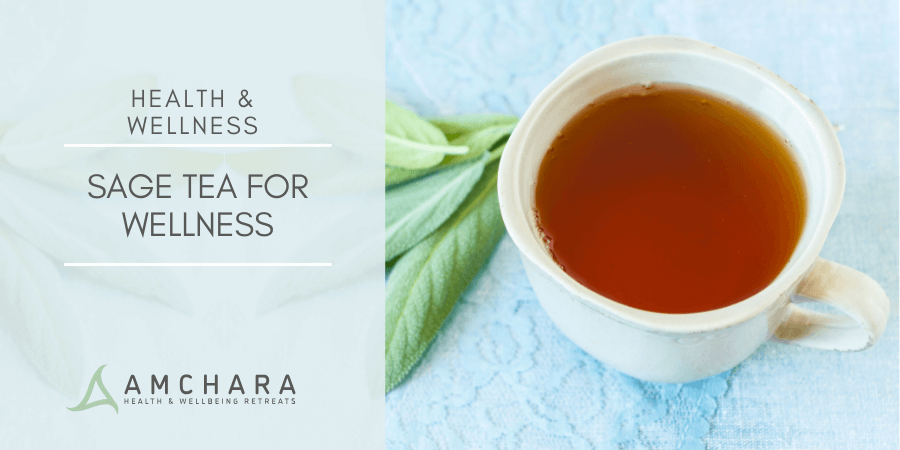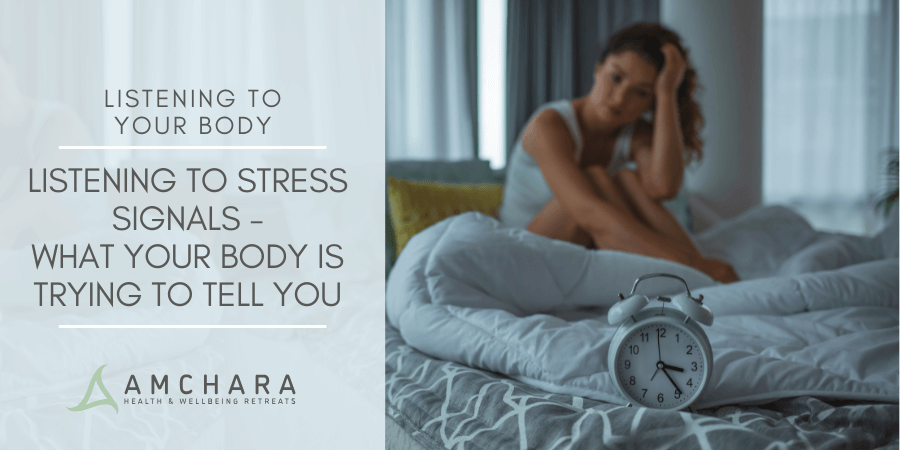Topics Covered in this article:
Whether it’s two weeks in the sun, a business trip at home or abroad, or even simply a long journey by car or plane, it’s often hard to look after your health in the same way as you do at home.
The last thing you’ll want is your long-awaited holiday or important business presentation to be ruined by illness, yet despite best intentions, with new food, cultures and routines you can often end up not feeling your best.
In this article we’ll look at 12 top tips to help you stay healthy when away from home.
#1 Avoid Tummy Troubles
Although trying the local cuisine is one of the joys of travelling, it makes sense to take precautions.
A bout of diarrhoea caused by the bacterial contamination of food, or an encounter with a parasite, can make for a miserable time not only on holiday but also after you return home.
Women appear to be more susceptible to traveller’s diarrhoea than are men (1).
In fact, it’s estimated up to 60% of travellers will suffer from holiday tummy while they are away from home, making it the most common health complaint for travellers (2).
Your individual susceptibility to food-borne bacteria depends on having a healthy balance of bacteria of your own, residing in your digestive system.
A healthy balance of gut bacteria can prevent pathogenic bacteria and parasites from taking hold, as they like to stick to the inside of your intestinal lining.
There are plenty of choices when it comes to supporting your digestive health on your travels:
- Take a probiotic to support the health of your gut bacteria. One containing saccharomyces boulardii may be beneficial. This has been found in studies to be effective against traveller’s diarrhoea (3), and unlike some healthy bacteria supplements, does not need to be kept in the fridge.
- The amino acid glutamine can help to support the health of the intestinal lining by boosting immune function in the gut, reducing inflammation and providing fuel for the cells which make up the intestinal lining. Glutamine is naturally found in chicken, fish, spinach, cabbage and asparagus. It’s also available as a supplement in powder form to mix with water or juice. It’s a good idea to take glutamine a month or so before you travel to improve your intestinal health in preparation for your trip.
- Turmeric contains a substance called curcumin which also is known to support intestinal health (4).
- Garlic acts as a natural antimicrobial, so include plenty of it in your food choices.
- An enzyme found in pineapple – bromelain – has been found to prevent infectious bacteria such as E coli from sticking to the cells of our intestinal walls (5). Who can resist fresh pineapple on a sunny beach?
- An herbal extract called berberine can be extracted from several plants, including goldenseal. It contains substances known as alkaloids which are anti-bacterial and antifungal (6).
- Essential oil of oregano also acts as a powerful antimicrobial (7).
Busy restaurants tend to have a higher turnover of food.
Food which has been left to sit, especially in high temperatures, soon starts to harbour bacteria which can multiply frighteningly quickly.
Water can also harbour bacteria.
Avoid ice in your drinks, which may have been made with contaminated water. Peel any fruit before eating it, and don’t eat salads which may have been washed with water containing bacteria.
Don’t brush your teeth with tap water.
Make sure the seal is unbroken on any bottled water you drink.
If you do succumb, stay hydrated with coconut water, miso soup or vegetable broth and avoid food until you feel like eating again.
Avoid acidic fruit juices and dairy products.
When you do start eating again, keep it bland.
#2 Aim for Five a Day
When you’re constantly eating out, or if you’ve limited cooking facilities and little storage space, making healthy food choices is trickier, but not impossible.
Taking with you healthy, non-perishable snacks means you won’t be reaching for convenience foods between meals.
Fill small airtight containers with unsalted fresh nuts, seeds, goji berries, coconut flakes and cranberries. Buy or make healthy protein bars for snacks on the go.
#3 Everything in Moderation
One of the great pleasures of travelling is to try the local delicacies, but it’s easy to overindulge, which may leave you feeling sluggish or suffering from bloating, wind or other tummy troubles.
The breakfast buffet will inevitably tempt you to overeat, but focus on the healthy options such as fruit, yoghurt or an omelette first, and there will be less likelihood you’ll splurge on sugary pastries or fried food.
Always eat mindfully – that way you’ll be far less likely to overeat.
#4 Avoid Travel Sickness
Motion sickness can be miserable, as anyone who has experienced the symptoms of nausea, vomiting, cold sweats, clamminess, dizziness and headache will know.
Motion sickness is caused when the movement sensed by your eyes is different from the movement which is sensed by your inner ear.
Women are more likely than men to experience motion sickness, and it appears to affect menstruating and pregnant women more than average.
Those who are prone to migraines are also more at risk.
Ginger can help alleviate nausea (8).
Try sipping warm water with a few slices of fresh ginger.
Mint tea can also be helpful if you’re feeling nauseous or try peppermint or lavender essential oils.
Sip naturally sparkling mineral water, and make sure you stay hydrated.
Some people find acupressure bands worn on the wrist can ease their symptoms.
The acupressure point on the inside of your wrist called nei-kuan, or P6, can give on-the-spot relief from motion sickness.
To find, it, place your right index finger, middle finger and ring fingers on the inside of your left wrist, starting just under the crease where your hand joins your arm.
The acupressure point will be under your index finger, between the tendons of the wrist. Apply pressure for around five seconds.
Other measures to combat travel sickness include keeping your eyes on a stationary object in the distance or on the horizon, sitting in the front rather than the back of the car, facing the direction you’re travelling, or choosing a window seat on the plane.
It may help to fan your face with cool air, and do not read or use your smartphone while in motion.
#5 Exercise
If you’re travelling on business, make a point of visiting the hotel gym before breakfast.
If you’re off on a beach break, get out and walk – not only will you see more of your destination, but you’ll feel more energised.
Swim, if there is a pool available – do a few lengths each time you jump in to cool down.
#6 Hydrate
This is crucial if you’re in a hot climate.
Remember, you’ll be sweating out salts as well as water, so you need to replace these too. Eat plenty of foods with a high water content, such as watermelon, cucumber and lettuce.
An excellent hydrating drink is coconut water, which is rich in the minerals potassium, magnesium, calcium and sodium.
#7 Go Easy on the Alcohol
If your holiday isn’t a holiday without your favourite tipple, then go ahead (in moderation), but you might want to make some sensible swaps.
Red wine contains a host of antioxidants from the skin of the grapes, so is a healthier choice – again, in moderation.
Add fizzy water and ice to white wine for a refreshing spritzer.
Always drink a glass of water along with any alcoholic drink and avoid alcohol completely if you’re flying – it’s extremely dehydrating.
#8 Respect the Sun
UV light from the sun has both psychological and physiological benefits, such as boosting mood and production of bone and brain-supporting vitamin D.
However, exposing your skin to sunlight to the extent of burning produces free radicals which can damage skin and contribute to premature skin ageing, pigmentation spots and even skin cancer.
Take precautions by staying in the shade for the hottest part of the day and protect your skin with a natural-based sunscreen – many sunscreens are packed with harsh chemicals.
If you do get burnt, apply pure aloe vera gel which is cooling and healing.
It makes sense to ensure you’re getting plenty of antioxidants from brightly coloured plant-based foods which can neutralise free radicals produced by sunlight.
#9 Support Your Immune System
Interrupted sleep, changing time zones and recycled aircraft air can all play havoc with your immune system.
Many of us will recall a time we’ve gone down with a bug the moment we arrive at our holiday destination.
When you’re travelling it’s wise to take along some immune-supporting vitamin C and echinacea.
#10 Be Flight Savvy
Flying is dehydrating, so make sure you take sufficient water on board with you.
Avoid alcohol, caffeine and sugar while you’re on a flight.
If you’re on a long flight, get up and walk around at least every hour, and regularly wiggle your feet around to keep your circulation flowing freely.
#11 Banish the Bugs
If you are an insect magnet but don’t want your holiday ruined by itching and scratching, try a natural insect repellent rather than spraying chemicals on your skin.
Look for one based on ingredients such as lemon eucalyptus oil, lavender, citronella and oils of cinnamon, tea tree and thyme, which have all been researched for their ability to ward off bugs.
If you are bitten, stop the itch with aloe vera, honey or tea tree oil.
#12 Sleep Well
A regular circadian rhythm is crucial to good health in ways we are only now beginning to appreciate.
Disturbance in this rhythm, such as when we cross time zones, can adversely affect our immune system and even our digestive functioning, making us more susceptible to traveller’s tummy.
Lack of sleep can be stressful, leaving you frazzled and unable to relax.
Try a little lavender oil on your pillow and pack an eye mask and ear plugs to help you nod off in an unfamiliar bed.
Spending even just 30 minutes outdoors during the daytime, particularly before noon, can help you sleep better during the night.
As soon as you arrive on board a plane, set your watch to the local time at your destination.
To further minimise the likelihood of sleep disruption, avoid alcohol and coffee during the flight and aim to arrive at your destination in daylight whenever possible.
Takeaway
Although travel is often seen as an opportunity to indulge, there’s no reason your health should suffer.
Relax, enjoy the sunshine, treat yourself and enjoy new experiences, food and cultures while staying healthy with our top tips.
If you always get sick when travelling, this may be a sign your immune system is not functioning optimally and often means your gut bacteria are out of balance.
A consultation with an experienced Amchara practitioner can help optimise your health, ensuring you a worry-free trip.
Bon voyage!
We’re dedicated to providing you with both insightful information and evidence-based content.
Did you find this article useful?
What are your top tips for healthy travel?
Share your comments below.
READ THIS NEXT:




